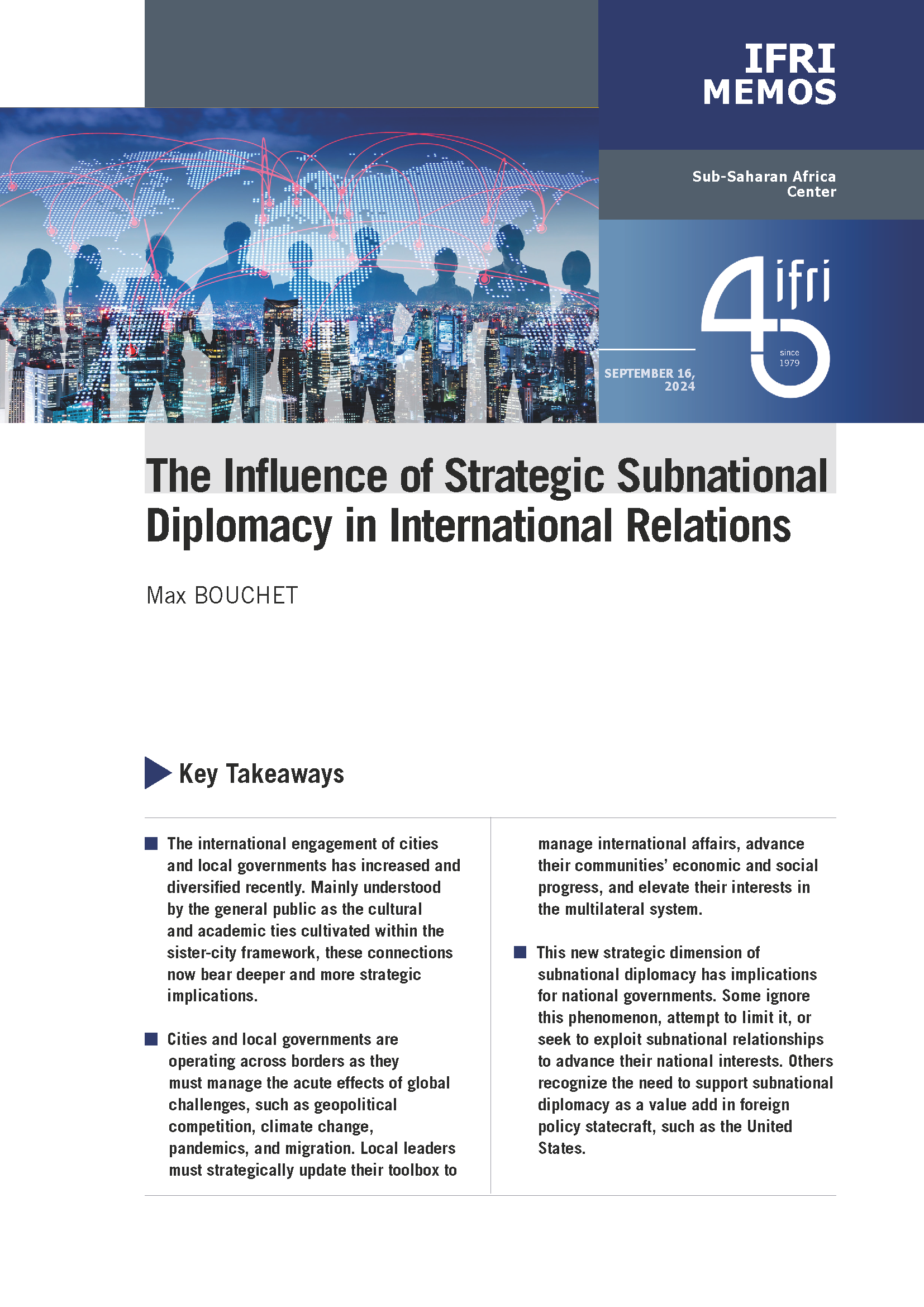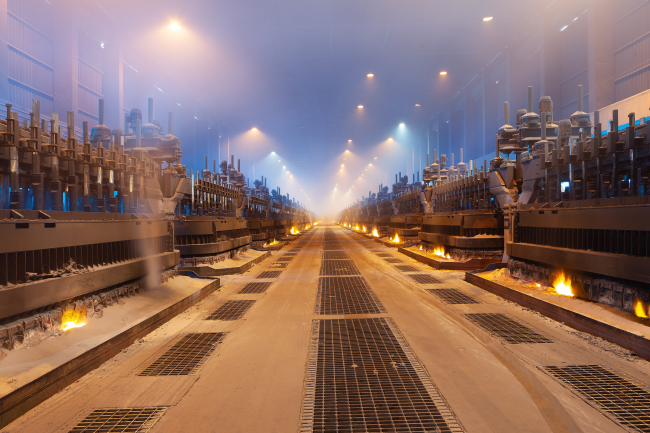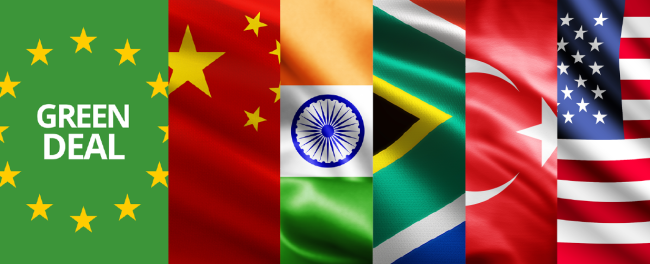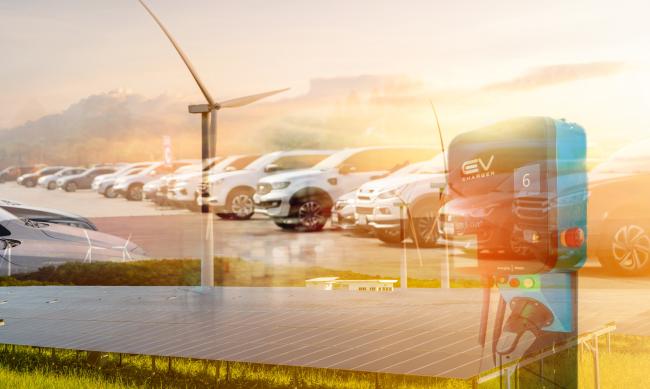Copenhagen's Legacy Is Ambiguity

The third Ifri Annual Energy Conference held at the Plaza Hotel, Brussels in February 2010 posed the question: “How do we begin effectively to close the gap between climate change policies and current practices - or put another way between climate change rhetoric and market reality”.
We are collectively practicing little of what we preach. There was little ambiguity on the magnitude of the problem confronting mankind that puts us on a collision course with serious climate instability as accepted reference scenarios project CO2 emissions rise over 200% by 2050. Technically feasible options for mitigating greenhouse gas emissions are available but they are not enough. Huge efficiency potential exists in all our economies, but progress is slow in correcting market imperfections or making the adjustments to lifestyle inherent in realizing obvious efficiency gains. There do not appear to be insurmountable costs to achieving sustainability - just a lack of willingness to pay. Much of the easiest mitigation is even at net negative cost and the higher costs of low carbon options offer other offsetting benefits in employment and trade in greener technologies. The capital requirements for sustainability are not beyond the world’s reach, but we have not found the formula to mobilize that capital.
The economic collapse of 2008-2009 does not appear to have had a defining impact on the energy sector except temporarily to disrupt markets, growth and investment plans. The nature of the challenges emerging with economic recovery has not changed substantially from the problems ex ante, e.g. slow turn over in capital stock, flawed markets where huge investment is required, ambiguity for energy investors both in infrastructure and the energy commodities themselves. These are aggravated by confusing disagreements on future demand for oil and gas and politically driven targets for low carbon options like renewable and bio-fuels. This leaves energy investors confused.
Uncertainties about energy demand growth have medium term implications for whether investment in the supply of energy infrastructure and commodities will be sufficient to meet growing demand in late decade. Ambiguity has the consequence of delayed or postponed investments now. Delays in investment in low carbon energy infrastructure and technology mean a loss of the limited time humanity has to reach the peak of carbon emissions and start a downward track.
Pervasive through the conference was an awareness that much of the challenge of the next decades is outside the countries of the OECD. The emerging world reasonably aspires to economic growth and improving welfare, but the planet cannot tolerate the desired growth in emerging countries if they have no option but to follow the OECD example of carbon intensive growth. How do we act collectively so that the emerging world can afford to deploy lower carbon technologies even as the industrialized countries dramatically reduce their own carbon footprint? Speakers at the Ifri conference reflected the sharply diverging views of Copenhagen negotiators on this central dilemma and lamented the lack of an emerging consensus on how this burden will be shared and who will start? It is obvious that the EU needs to adapt its strategy after Copenhagen as the offer to step up Europe’s pledge to a 30% reduction drew no support.
Conference participants left little doubt that the single most important requirement for those who must invest in the future - is less ambiguity about the rules of the game. Copenhagen left altogether too much ambiguity. Do national policy commitments to a lower carbon future go beyond politicians" targetry? Will clear policy parameters be set and when? Can regulations which apply equitably be put in place to guide investments? Can stable policy and price signals be established that permit cost-benefit assessments of investment options?
These conclusions of Ifri’s Annual Energy Conference were no doubt self-evident to some going into it. But it is clear these truths have not been taken to heart by our populations and politicians - perhaps intellectually but not materially. Some say Copenhagen was the end of the beginning and 2010 will show the start of serious negotiations. Perhaps, but each year that is lost in answering the challenge raises the long term cost to society of paying the consequences of inaction.

Also available in:
Regions and themes
Share
Related centers and programs
Discover our other research centers and programsFind out more
Discover all our analysesThe Aluminum Value Chain: A Key Component of Europe’s Strategic Autonomy and Carbon Neutrality
The United States of America (US), Canada and the European Union (EU) all now consider aluminum as strategic. This metal is indeed increasingly used, especially for the energy transition, be it for electric vehicles (EVs), electricity grids, wind turbines or solar panels.
The EU Green Deal External Impacts: Views from China, India, South Africa, Türkiye and the United States
Ahead of June 2024 European elections and against the backdrop of growing geopolitical and geoeconomic frictions, if not tensions, between the EU and some of its largest trade partners, not least based on the external impacts of the European Green Deal (EGD), Ifri chose to collect views and analyses from leading experts from China, India, South Africa, Türkiye and the United States of America (US) on how they assess bilateral relations in the field of energy and climate, and what issues and opportunities they envisage going forward.
Electric Vehicles: A Strong and Still Understated Performance
Electric vehicles (EVs) are better for the climate – even in worst-case scenarios. Across its life cycle, a typical European electric car produces less greenhouse gas (GHG) and air pollutants or noise than its petrol or diesel equivalent. Emissions are usually higher in the production phase, but these are more than offset over time by lower emissions in the use phase. According to the European Environment Agency’s report on electric vehicles, life cycle GHG emissions of EVs are about 17-30% lower than those of petrol and diesel cars.
How Can the Green Deal Adapt to a Brutal World?
The European Green Deal has not been planned for the current extraordinarily deteriorated internal and external environment. Russia’s war in Ukraine, higher interest rates, inflation, strained public finances, weakened value chains, and lack of crucial skills pose unprecedented challenges.












